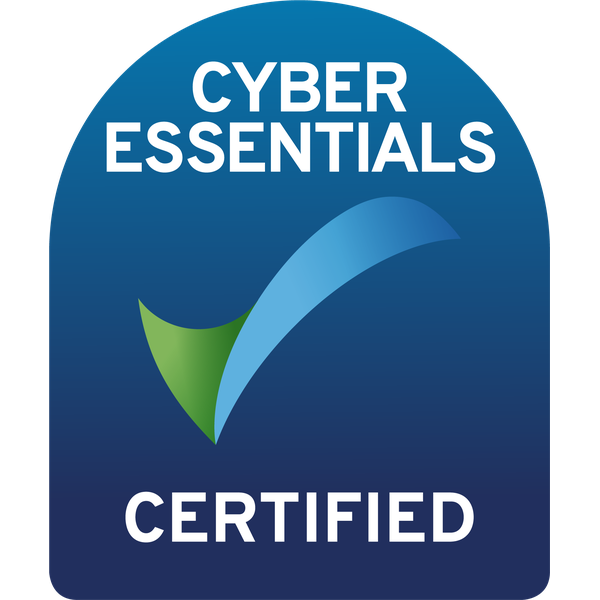Written by:

Grant Yuill
Head of Marketing & Customer Engagement
A recent report stated that 80% of Law Firms find process-oriented AML and KYC screening challenging.
One of the reasons criminals seek out the involvement of legal professionals is often because a legal professional is required to complete certain transactions or to access specialised legal and notarial skills and services which could assist the laundering of the proceeds of crime and the funding of terrorism. This means that the onus is increasingly on lawyers, who may be vulnerable to the risk of inadvertently facilitating money laundering, to detect, monitor and mitigate potential red flags.
HM Treasury and the National Crime Agency in the latest National Risk Assessment clearly define the legal sector as being at high risk of Money Laundering. Therefore, the regulators and Law Societies around the UK are clamping down on areas of weakness and setting out a plan to increase the frequency and intensity of AML and KYC inspections.
One of the plans is to pilot a new “high risk” inspection process with sample firms between August and December 2020. A way in which they are doing so is by adopting a risk-based approach to their supervisory AML inspection regime. The regulations oblige them to develop and record risk profiles for each firm and then base the frequency and intensity of their supervision on these profiles. They will also prioritise checks according to the areas of a firm’s business they deem to be of higher inherent risk. They sate that this is beneficial to them, but also to the firm itself as they will not routinely be reviewing lower risk transactions which they anticipate will make up the bulk of a firm’s work.
Protect Your Firm
Anyone reading this will know that Anti-Money Laundering and Know Your Customer are widespread in the legal world and are often used interchangeably. Many of you will have done your research and understand the differences. So instead of wasting time explaining what the differences are, I want to use this article to make it very clear about how important it is to have a robust AML and KYC system in place to help meet the stringent compliance requirements and protect your firm.
When to perform KYC and AML?
When you establish a new relationship with a client and before any exchange of money you must perform the appropriate client due diligence to ensure AML compliance.
There are four primary objectives when gathering KYC information, using a risk-based approach:
- Identify the customer
- Verify the client’s true identity
- Understand the customer’s activities and source of funding
- Monitor the customer’s activities
While there are a number of high-quality free sources of information, such as search engines or public databases, finding exactly what you need from this vast range of resources is incredibly time-consuming. This simply isn’t a feasible long-term approach for any business that values speed, efficiency and scalability, which is why many regulated firms invest in a system that can support them with an efficient and secure means of completing checks required for AML and KYC.
As I’m sure you’ll know, meeting regulatory requirements can be a real drain on staff and client time and resources, not to mention expensive. Yet, protecting client data and reducing risk are essential to running a modern law firm. The thought of moving from your current compliance process to a new, online system can be a daunting task, but it’s perhaps simpler and less expensive than you may think.
What Happens if AML and KYC checks are not carried out?
Failing to carry out the required checks can result in penalties by the Financial Conduct Authority (FCA) and Her Majesty’s Revenue (HMRC).
The FCA oversees compliance with AML regulations in the UK and has the power to investigate money laundering and terrorism financing offenses in conjunction with other law enforcement agencies and authorities, such as the Crown Prosecution Service (CPS).
HMRC shares the responsibility to investigate money laundering offenses with the FCA. In addition to the FCA and HMRC, the power to enforce money laundering regulations in the UK is shared by the National Crime Agency (NCA) and the Serious Fraud Office (SFO), both of which have the power of arrest and can seek warrants and court orders.
What can your firm do?
Legal firms everywhere need to review their practices to ensure they remain compliant with increasingly stringent regulations. Ideally you should put systems and processes in place that enable you to verify the identity of clients, and ensure they understand the true nature and purpose of the business relationships they engage in. Make it easier to meet regulatory requirements for AML by bringing your client and staff compliance checks and onboarding into one secure online account.
Conducting these due diligence checks enables you to take a risk-based approach and avoids exposing your firm to any potentially damaging circumstances.
How can Denovo help?
 We’re at a point now where meeting these standards is the only way to maintain the ideals of regulatory best practice within the legal profession.
We’re at a point now where meeting these standards is the only way to maintain the ideals of regulatory best practice within the legal profession.
Here at Denovo we’ve worked with Amiqus ID’s award-winning team to seamlessly integrate workflows, digital risk assessments, internal decision-making audits and client data with our case management system, Caseload. All the data is stored in one place, so there’s no need for duplication, you’ll save yourself time and can be assured that you’re being consistent and secure.
Amiqus ID makes it easy for you to achieve this with checks such as:
- Identity Checks
- Credit Reports
- Photo ID Verification
- Basic Disclosures
- Companies Lookup
- Remote Client Onboarding
- Watch List (PEPs, sanctions & adverse media)
Mark McBride, Director at Wallace Quinn Solicitors & Estate Agents in Glasgow was an early adopter of Amiqus ID. He had this to say about the importance of the integration with his Denovo practice management software; “Using a solution that is respected and approved by the Law Society helps to give confidence that our business and reputation is adequately protected from financial crime risk. The integration has helped us a lot. Being able to run the ID checks via the files and then saving them in automatically when approved has been a really good addition. For example, we often run ID checks on third parties for deposit gifts, therefore the integrated save in is really useful.”
Take a look at our recent partnership announcement and link to a video about this helpful, time saving integration.
If you like what you see, get in touch and we can have a chat about how we can help save your firm time and money by turning hours of paperwork into minutes of secure online compliance checks.
Call us on {{CONTACT_NUMBER}} or email info@denovobi.com to get some advice from our legal technology experts.












